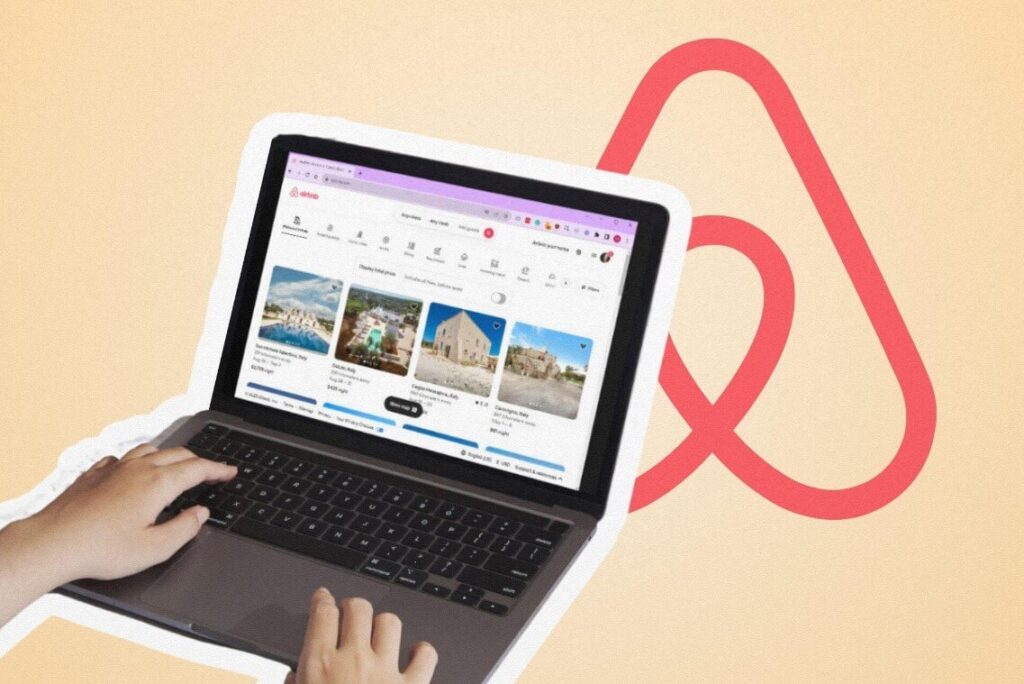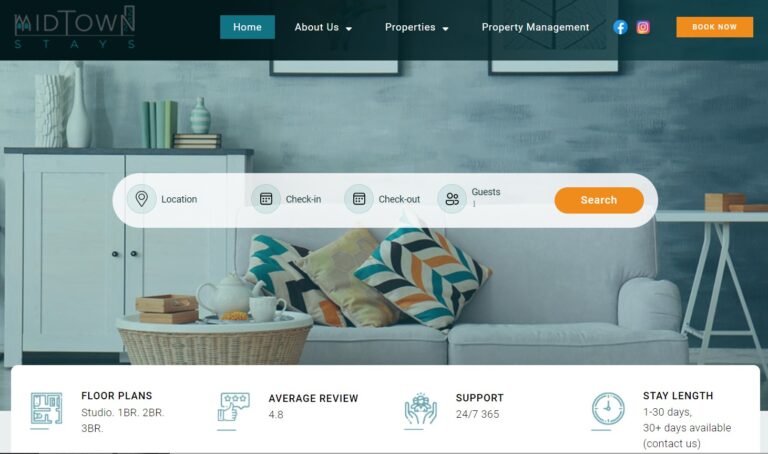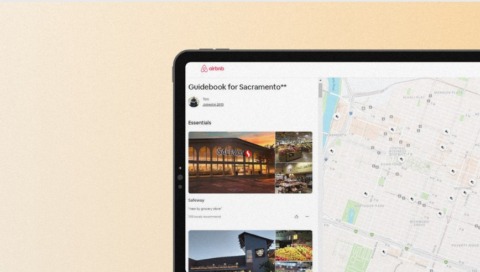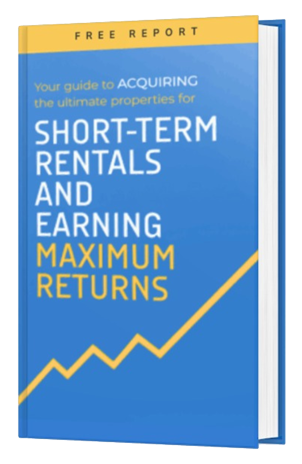Did you know that the global booking value for Airbnb reached a staggering 63 billion U.S. dollars in 2022? That’s right, and it’s no wonder why so many people are diving into the world of short-term rentals. Let’s explore the ins and outs of starting an Airbnb business.
What is Airbnb?
Airbnb is not just a buzzword; it’s a revolution in the hospitality industry. It’s a platform that connects hosts with travelers, offering a home-like feel that traditional hotels often lack.
Starting an Airbnb means opening your doors to the world, providing unique and personal lodging experiences within your space.
The Airbnb business model is as fascinating as it is lucrative. It’s a gig-based economy that has taken the United States by storm since its inception in 2007.
Whether you’re looking to earn some extra income or turn it into a full-time venture, Airbnb offers flexibility and potential. It’s like turning your home into a boutique hotel, where you’re the boss.
Gone are the days when hotels and motels were the only options. Airbnb has democratized travel, making it accessible and personalized.
Can you imagine the impact it’s had on the travel industry? It’s colossal!
Understanding the Market and Opportunity
With millions of listings worldwide, it’s a platform that has captured the hearts of travelers and hosts alike. But what makes it so appealing?
It’s the connection, the authenticity, and the opportunity to explore places in a way that was never possible before.
Starting an Airbnb is not just about hosting; it’s about financial empowerment. With the average income for US hosts recently rising to $13,800, an 85% increase from 2019, the numbers speak for themselves.
Q2 2023 marked another quarter of strong results. We owe our success to our Hosts and guests. Read more in our shareholder letter: https://t.co/2htGstnxvF $ABNB pic.twitter.com/BJn7lvtkLj
— Airbnb (@Airbnb) August 3, 2023
It’s a business with real potential. How far you take it is up to you.
But how do you stand out in a crowded market? It’s about understanding your audience and offering something unique. Researching similar listings in your area and identifying opportunities to offer unique amenities is the key.
What can you offer that others can’t? That’s your golden ticket.
If you want to learn how to get the best deals in up and coming areas, I highly recommend this book by David Lindahl

Planning and Compliance
Starting an Airbnb without a plan is like building a house without a blueprint.
You need a solid foundation, a clear vision, and a roadmap to success. Your business plan is your compass, guiding you through the maze of decisions and challenges. It’s not just a document; it’s your ally in this exciting venture.
But wait, can you just start renting out your space?
Not so fast.
There are rules to follow, permissions to obtain, and local laws to comply with. Understanding housing association rules, checking for permits, and seeking permissions from landlords or mortgage providers is not just essential; it’s mandatory.
You can find tons of business plan templates online, here’s one from BPlans to get you started.
And let’s not forget the legal side of things.
Starting an Airbnb means entering the world of business, and that requires legal registration and compliance. It’s not as daunting as it sounds, though. With the right guidance and understanding of the legal structure, securing funding, registering with the IRS, and opening a business bank account can be smooth sailing.
Property Acquisition and Furnishing
The first step in starting an Airbnb is finding the right property. Location is paramount; proximity to tourist attractions, public transportation, and local amenities can make or break the guest experience.
Size and accessibility are also vital. Whether it’s a single room or a luxurious home, the property must align with the needs and expectations of your target audience. Consider the layout, parking availability, and any unique features that might attract guests.
Download The 16 Page Guide to Acquiring The Right Property For STR Returns
The type of property and its location can make or break your investment.
Don’t “bet the house” on the wrong property.
Find out how to determine the right markets and properties for better, safer returns…


Preparing and Furnishing the Space
Once you’ve found the perfect property, it’s time to prepare and furnish the space. This phase involves everything from painting and minor repairs to selecting furniture and decor.
The color scheme should be appealing and neutral, and the furniture should be comfortable and durable. Consider the needs of your guests, such as providing a well-equipped kitchen, ample seating in the living area, and comfortable beds.
Don’t forget to add personal touches like artwork or add some plants to make the space feel welcoming.
Ordering furniture and coordinating delivery requires careful planning and execution. Consider working with local suppliers or online platforms that specialize in furnishing rental properties.
Setting Up Home Automation (e.g., Door Locks, Smart TV)
In the age of technology, home automation has become an expected feature for many guests. Smart door locks offer convenience and security, allowing guests to check in and out without physical keys.
Intelligent TVs provide entertainment options, and smart thermostats can enhance comfort while saving energy.
Starting an Airbnb in today’s world means embracing technology. Consider investing in devices that can be controlled through a central hub or smartphone app. This not only provides convenience to your guests but also allows you to monitor and manage the property remotely.
Ensure that instructions for using these devices are clear and easily accessible, and always prioritize privacy and security in your technology choices.
Financial Management
Managing finances and fees is a critical aspect of starting an Airbnb. Understanding and managing all the costs involved is key to a profitable venture.
This includes:
- utilities
- cleaning services
- co-host compensation
- taxes
- other expenses that may arise
Creating a detailed budget and tracking expenses regularly can help you steer clear of hidden costs and unexpected fees.
Managing finances and fees is a critical aspect of starting an Airbnb. Understanding and managing all the costs involved is key to a profitable venture.
This includes utilities, cleaning services, co-host compensation, taxes, among other expenses.
Creating a detailed budget and tracking expenses regularly can help you steer clear of hidden costs and unexpected fees.
Co-Hosting Responsibilities
Co-hosting is a partnership that requires clear agreements on compensation and an understanding of tax implications. Both partners must have a clear understanding of their roles and responsibilities.
This includes defining:
- the percentage of revenue sharing
- responsibilities for property management
- guest communication
Clear agreements and compliance with tax laws ensure a smooth and successful collaboration.
Payment Platforms and Hassle-Free Transactions
Offering hassle-free transactions is essential in the world of business. Utilizing platforms like Stripe, Payoneer or other online payment solutions simplifies payments and enhances trust between you and your guests.
Insurance and Liability
Insurance is an essential part of financial management for Airbnb hosts. Ensuring that you have the right coverage for property damage, liability, and other potential risks protects you and your investment. Understanding the terms of your insurance policy and complying with all requirements is vital to avoid any gaps in coverage.
Tax Compliance
Understanding and complying with tax laws is a crucial part of financial management. This includes income taxes, occupancy taxes, and any other local taxes that may apply to short-term rentals. Working with a tax professional who is familiar with the specific requirements in your area can help you navigate the complexities of tax compliance.
Listen to Tom Wheelwright’s strategies to pay ZERO taxes when operating an STR, here.
Investment and Return on Investment (ROI)
Investing in your property, whether it’s through renovations, furnishings, or amenities, can enhance the guest experience and increase your revenue.
Tracking your investments and measuring the return on investment (ROI) helps you make informed decisions about where to invest further. Analyzing data on occupancy rates, average nightly rates, and guest feedback can guide your investment strategies.
Long-Term Financial Planning
Long-term financial planning is essential for the sustainability and growth of your Airbnb business. This includes setting financial goals, planning for future investments, and building a financial cushion for unexpected expenses.
Regularly reviewing your financial performance and adjusting your strategies as needed helps you stay on track and achieve your long-term goals.
Setting Prices and Marketing
Pricing your property competitively is crucial to maximize occupancy and revenue. Research similar properties in your area to understand the going rates and consider factors like seasonality, local events, and demand trends. Utilize dynamic pricing tools that adjust prices based on market conditions to stay competitive.
Revenue management goes beyond just setting the right price. Monitor your bookings, analyze performance metrics, and adjust your strategies as needed. Consider offering additional services or amenities that can generate extra income, such as bike rentals or guided tours.
Pricelabs.co can help you set the right prices
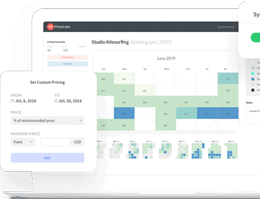
Save time and increase income with their dynamic pricing tool and data solutions. Works with Airbnb, VRBO, Vacation Rentals, BnB’s, Apart-hotels, Serviced Apartments! Available globally! No geographical constraints.
Marketing
Marketing your Airbnb property is essential to attract guests. Start by creating an appealing listing with high-quality photos that showcase the best features of your property.
Include detailed descriptions that highlight unique amenities, nearby attractions, and what sets your place apart from others. Utilize social media and other online platforms to promote your listing and consider offering special discounts or incentives for first-time guests or extended stays.
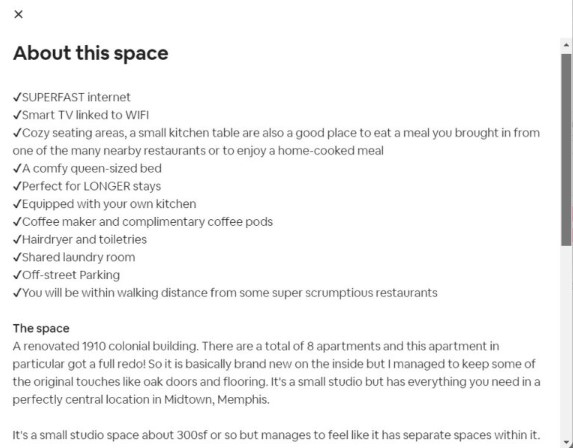
Guest experience is at the heart of a successful Airbnb business. From the moment they book until they check out, every interaction matters.
Provide clear and timely communication, offer a smooth check-in process, and ensure the property is clean and well-maintained. Consider adding personal touches like a welcome basket or a local guidebook to enhance their stay.
Website Creation and Communication Systems
Your website is the digital foyer of your Airbnb, a virtual open house where guests can explore. Creating a user-friendly website and efficient communication systems is more than just an online presence. It’s the welcoming embrace of your hospitality in the digital realm.
Providing a Seamless Experience
Your Airbnb is more than just a place to stay; it’s a memory in the making. You’re not just offering a bed for the night; you’re creating an experience that your guests will cherish. Even if something goes wrong, with the right host guarantees, you can handle mishaps gracefully and leave a lasting positive impression.
Staying in the Property to Identify Issues
Have you ever thought about being a guest in your own property? It’s a great way to spot any imperfections and areas for improvement. By experiencing what your guests will experience, you can ensure that everything is just right for a hassle-free stay.
Stay in your property, yeah, seriously, sleep in the bed, stay there. It’s important because I guarantee something will pop up that you weren’t aware of unless this happens to be a property that you lived in for a long time.
Tim Hubbard
Professional Photos and Property Setup
First impressions matter, and that’s where professional photos and a well-arranged setup come in. It’s like putting on your best outfit for a special occasion; it shows that you care and that you’re committed to quality.
But it’s more than just looking good; it’s about making your guests feel welcomed and comfortable from the moment they click on your listing.
I highly recommend having professional photos. You don’t want to doctor them too much, or someone's gonna show up at your property, and it doesn’t actually look like the photos.
Tim Hubbard
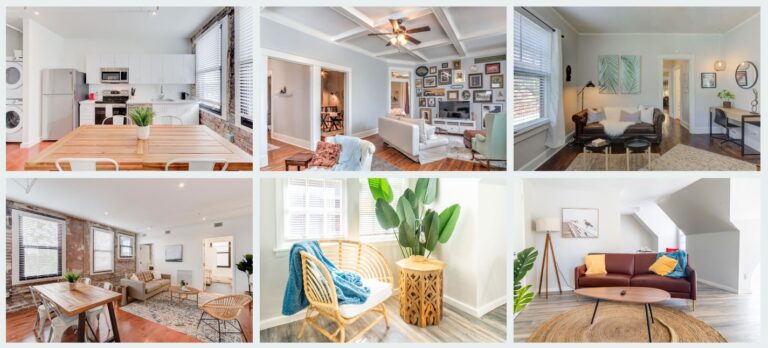
Labeling Non-Intuitive Items in the Property
Every home has its quirks, and your property is no different. But what’s second nature to you might be confusing to someone new. That’s why labeling non-intuitive items can be such a thoughtful touch. It’s like giving your guests a friendly guide to your home, helping them feel at ease even in unfamiliar surroundings.
Providing Local Insights and Recommendations
Want to take your hosting to the next level? Consider offering local insights and recommendations. Whether it’s the best coffee shop in town or a hidden hiking trail, sharing your local knowledge can turn a good trip into an unforgettable one. It’s like having a friend in the city, guiding you to the best spots.
Ensuring Clear Communication and Support
Communication is key to a seamless experience. From the initial booking to the farewell, keeping the lines of communication open and offering support when needed builds trust and satisfaction. It’s about being there for your guests, answering their questions, and making their stay as enjoyable as possible.
Understanding the Earnings Potential and Adapting to Trends
Starting an Airbnb can be more than just a part-time endeavor; it can blossom into a full-fledged career. But to make that dream a reality, you need to understand your earnings potential and be ready to adapt to the ever-changing trends in the travel industry.
Calculating potential earnings is a critical first step. By assessing factors like location, nightly rates, and expected occupancy, you can create a strategic blueprint that guides your financial journey. It’s not just about crunching numbers; it’s about setting realistic goals and knowing what’s achievable.
Monitoring and predicting occupancy rates is another essential aspect. These numbers are the lifeblood of your business, setting the tempo and allowing you to plan and prepare with insight. Knowing when you’re likely to be busy and when things might be slow helps you manage your business more effectively.
But the travel landscape is as dynamic as the seasons, and keeping an eye on trends and demand is crucial. Whether it’s a shift in traveler preferences or a global upheaval like a pandemic, your ability to adapt and align your business with these changes is a testament to your resilience and success.
Frequently Asked Questions about Starting an Airbnb
Absolutely! Starting an Airbnb can be a rewarding venture both financially and personally. It offers the opportunity to meet people from around the world and provide them with a unique and comfortable stay.
With proper planning, dedication, and a touch of creativity, it can be a fulfilling and profitable business.
Yes, running an Airbnb can be profitable. Some hosts even turn it into a full-time opportunity, earning six-figure incomes.
The profitability depends on various factors such as location, property type, pricing strategy, and guest experience.
Airbnb owners’ earnings can vary widely based on factors like location, property type, occupancy rates, and pricing. On average, hosts can earn around $9,600 annually, with some making much more.
While becoming a millionaire solely through Airbnb might be a stretch for most, it’s not entirely out of reach. Some hosts have turned their Airbnb ventures into highly successful businesses, earning substantial incomes.
The profitability of an Airbnb depends on various factors, including location, property type, and amenities offered. Luxurious homes, unique spaces, and properties in popular tourist destinations often command higher prices. Understanding your market and offering unique amenities can lead to higher earnings.
The optimal number of rooms for an Airbnb depends on the target market and location. Some guests prefer cozy single-room rentals, while others look for spacious homes for family vacations. Assessing the demand in your area and aligning with guest preferences can guide the best choice.
Airbnb typically charges hosts a service fee that ranges from 3% to 5% of the booking cost. This fee helps cover the cost of running the platform, including features like customer support and secure payment processing.

